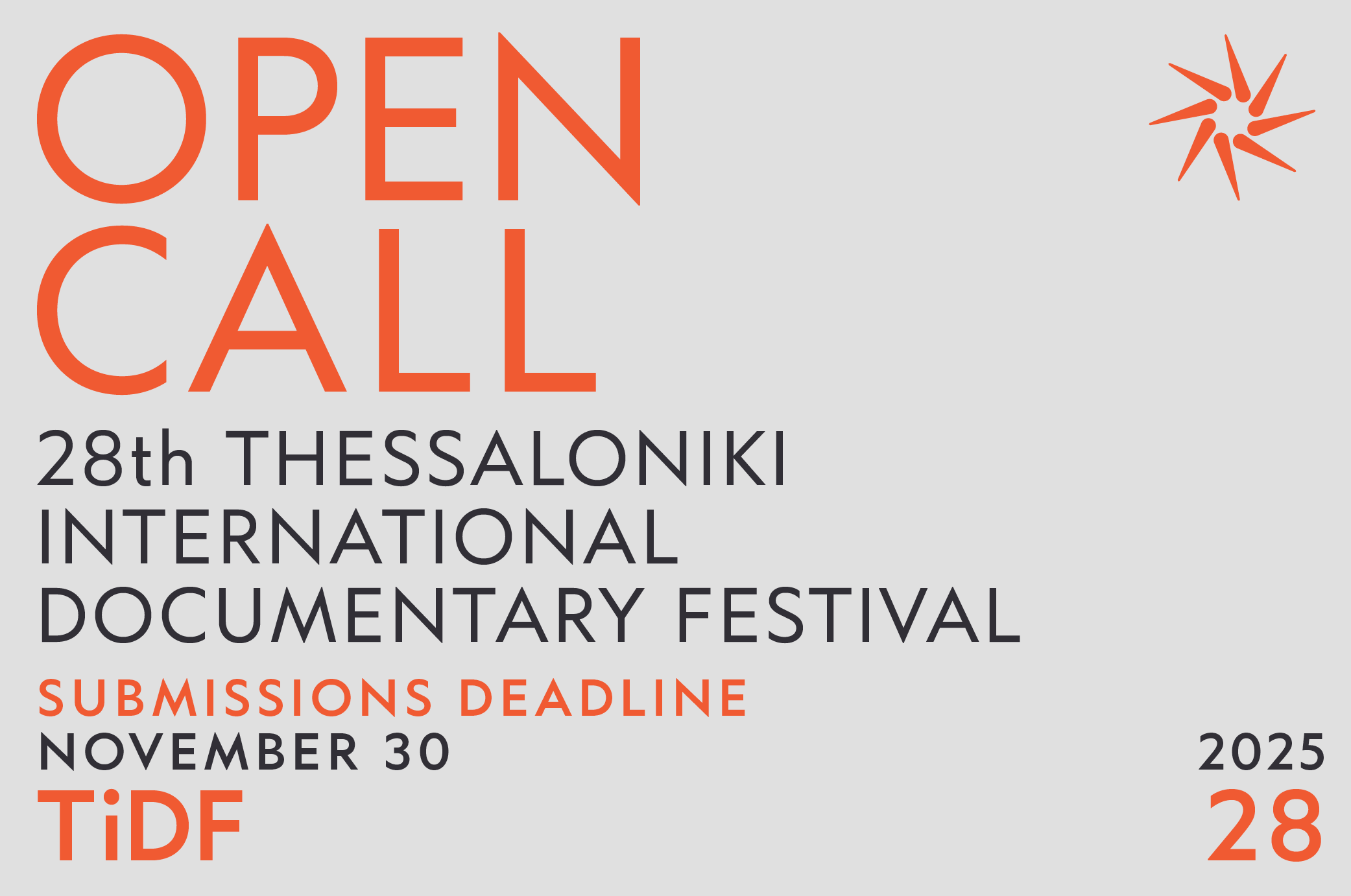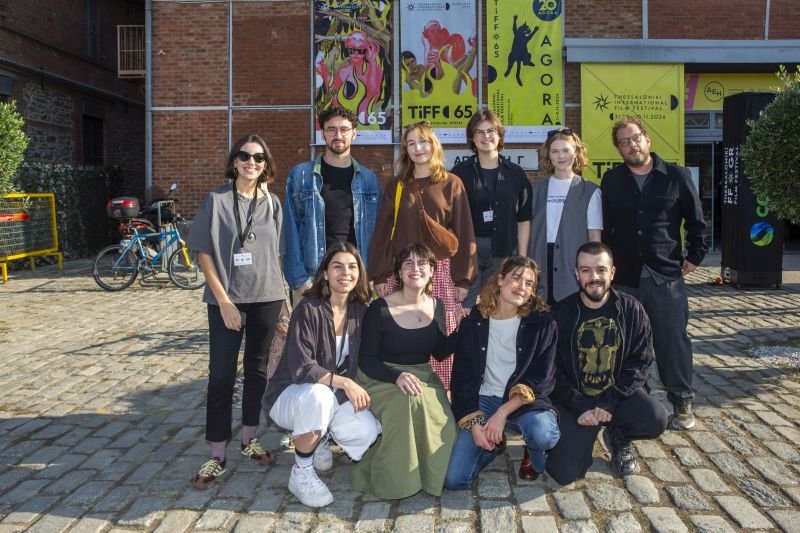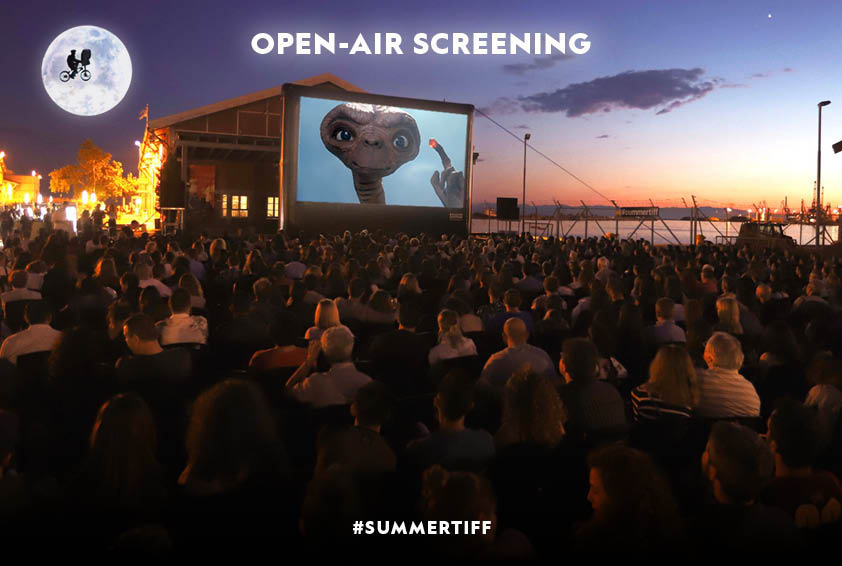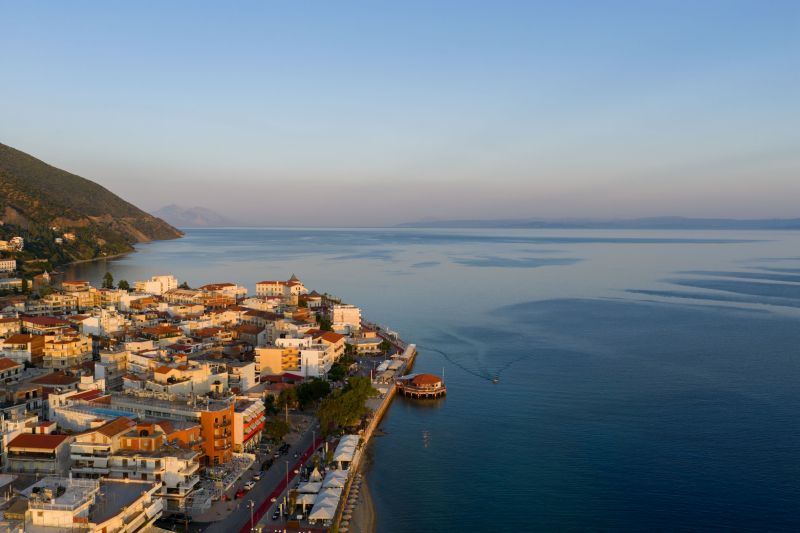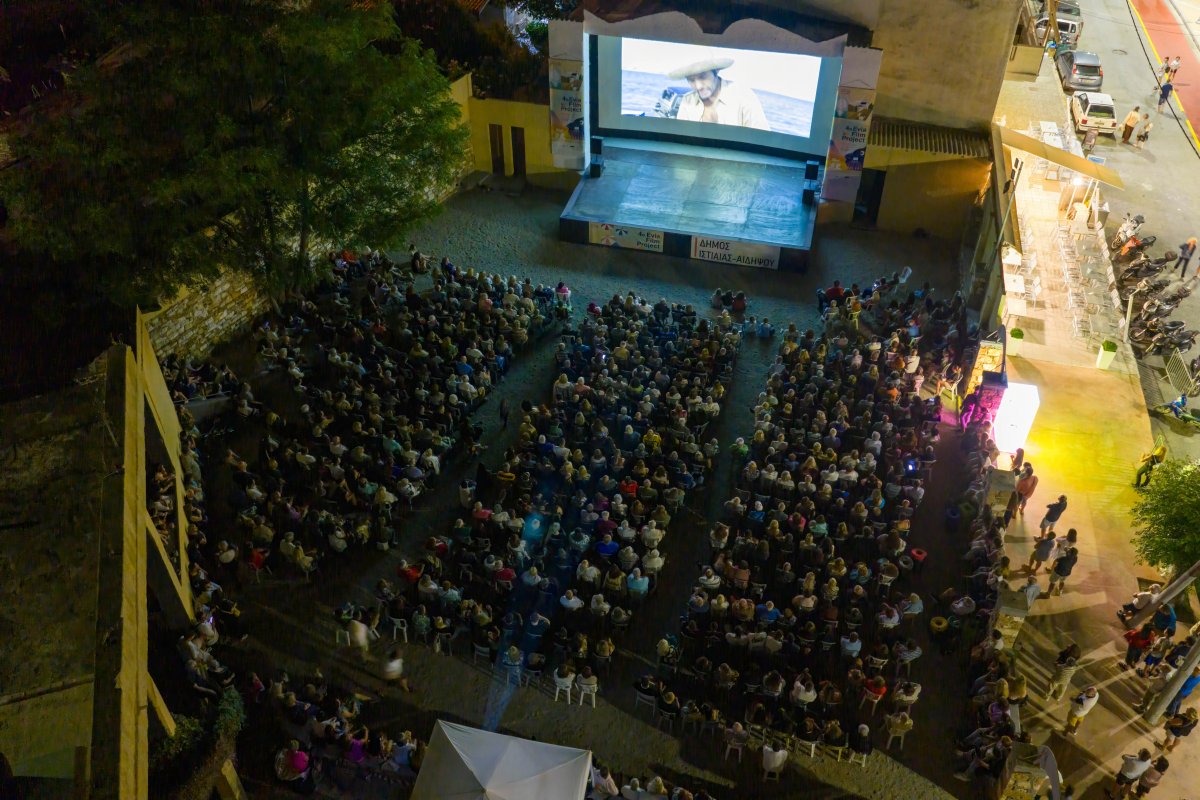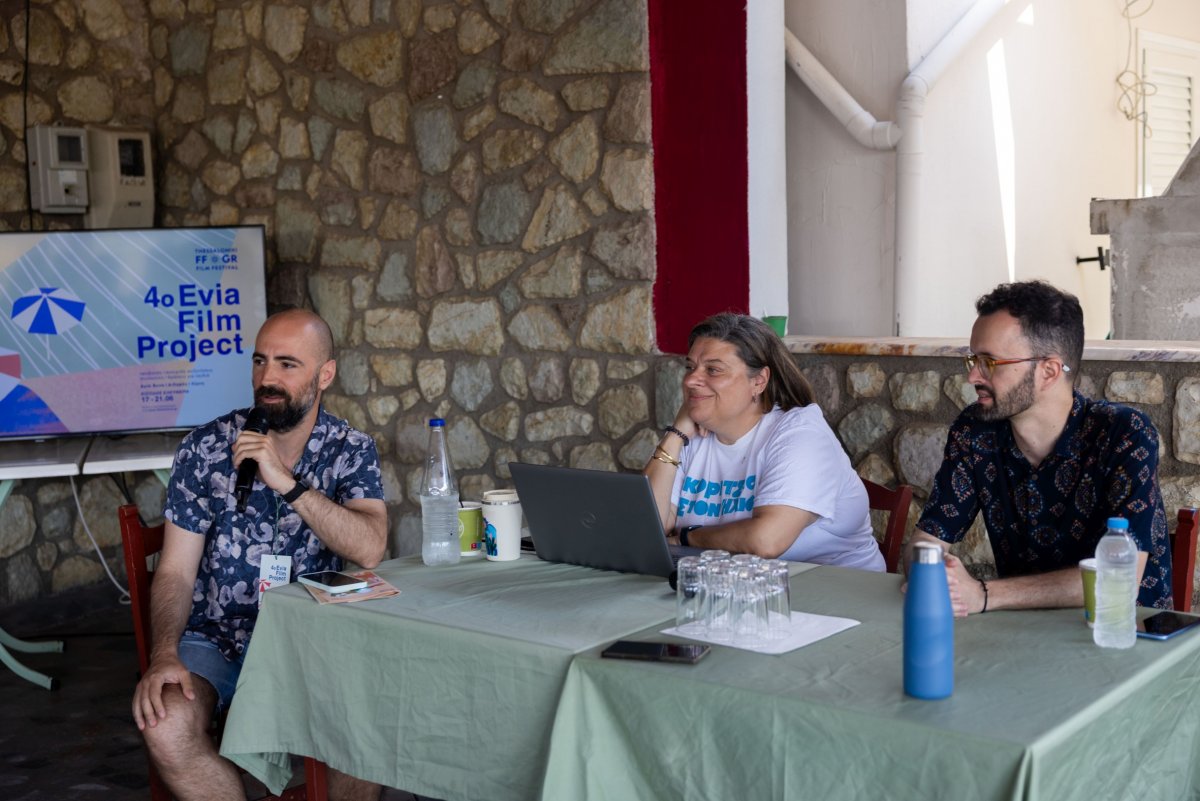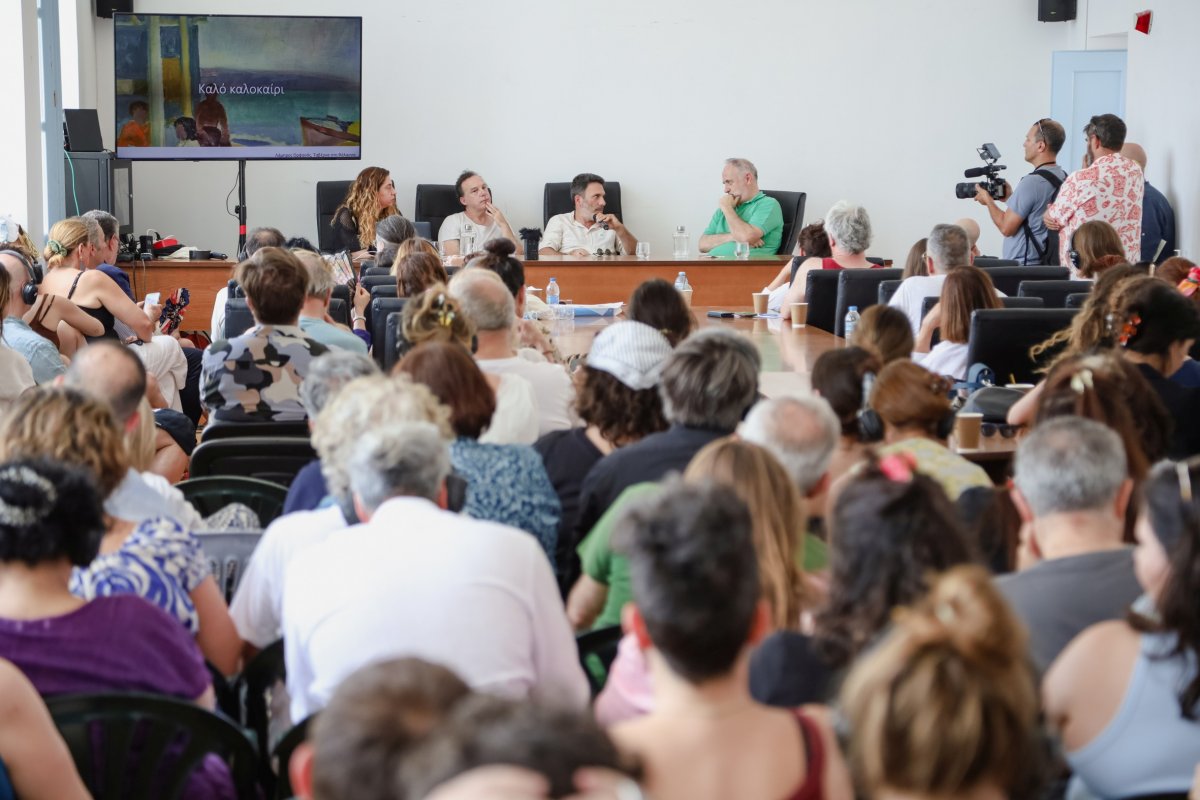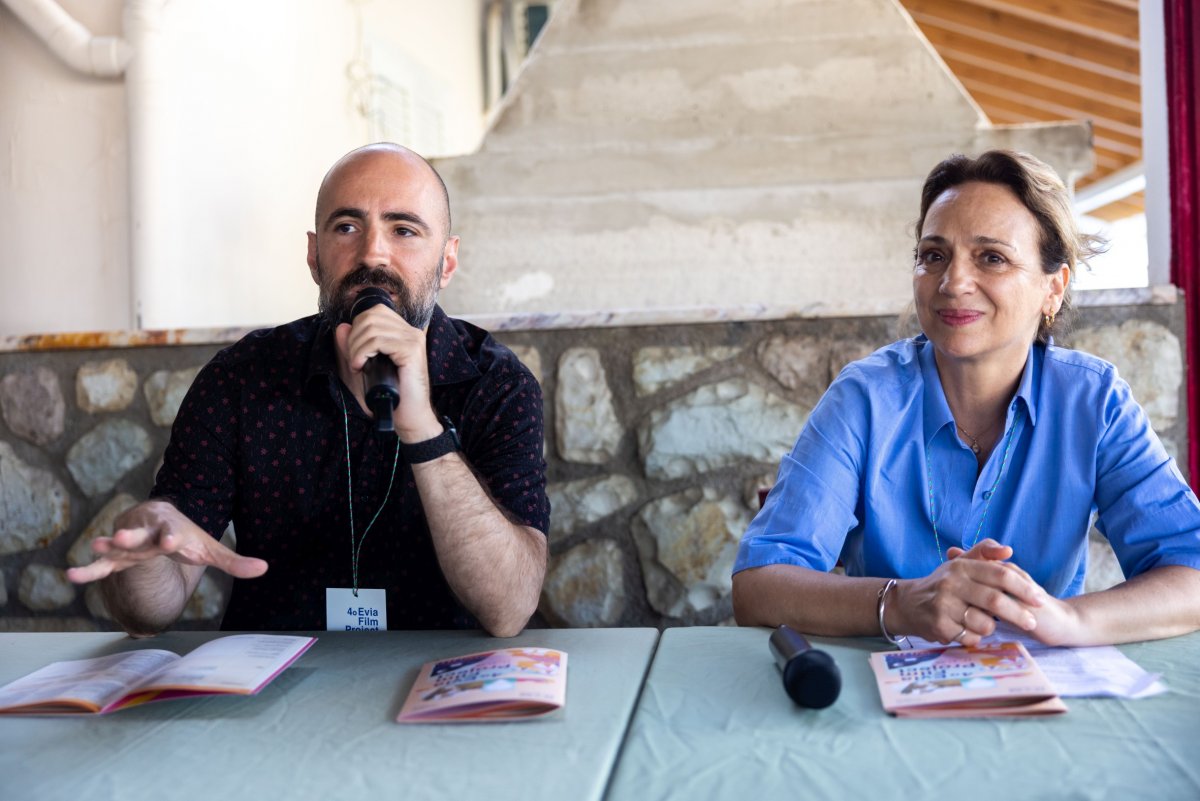Nae Caranfil
Nae Caranfil:A Popular Filmmaker of Our Time
Nae Caranfil belongs to the generation of the transitional period of Romanian cinema, which links the pre-revolutionary period to the “New Wave” that emerged at the dawn of the 21st century.
He is a true auteur, since he writes, directs and sometimes composes the music for his films, while he has no qualms about playing bit-parts. His cinematic viewpoint combined with the selection of his themes and the personal tone which is typical of his films render him perhaps the leading Romanian filmmaker of the 1990s and a precursor of the present New Wave in Romanian cinema.
In 1993 he directed his first feature film, Don’t Lean Out the Window, which dealt with everyday life in the last years of Communism in Romania. Using a polyphonic narration, Caranfil tells us the story of three young men whose lives are intertwined.At the time, references to the Communist past either were considered traumatic and were avoided, or they supported a specific view that was in favor of one or the other side. Caranfil approached the period with great sensitivity, recreating the atmosphere of that era with tenderness and no hint of anger. He uses humor and irony to speak about loneliness, the tendency towards fantasy, the desire to flee to the West, the sexual desire of his heroes and the things that keep them together and act as catalysts in their lives. In the end, the film reveals the way in which his generation dealt with the harsh years of totalitarianism. His cinematic approach, as well as certain subjects that he touches upon and which keep recurring in subsequent films, have served as points of reference and sources of inspiration for younger Romanian film directors, for example, Cristian Mungiu in his films West (2002) and 4 months, 3 weeks, 2 days (2007), and Catalin Miyulescu in How I Spent the End of the World (2006).
In Asphalt Tango (1996), Caranfil illustrates the changes brought about by the fall of Communism in a bitter road-movie/comedy, which depicts the destructive aspects of the “new order” by focusing on the collapse of the institution of marriage before the prospect of fleeing to the West – and to prostitution. At the same time, Caranfil paints a portrait of the post-Ceausecu era, highlighting the social and moral problems that torment his country.
He then made Dolce far niente (1998), based on the novel by Frederic Vitoux, La Comedie de Terracina, about an antihero with no purpose, who simply watches life unfold around him. Even though it’s a period film, the main character’s life stance has a timelessness and a universality about it that render it contemporary, with Caranfil drawing on various cinematic genres as he puts together a playful, atmospheric story on the incoherence of everyday life.
With Philanthropy (2002), Caranfil returns to the theme of social transformation and lost innocence with his familiar ironic and comical approach, full of screenwriting contrivances and reversals, through which he satirizes and comments upon the results of post-Communist freedom. Using actual events as his starting point, he tells a modern-day fairytale in which he sets the romantic,“good old days” world of the hero against the contemporary reality of capitalism.Without ever resorting to sentimentalism or cliche, he shows us that in a world where people are either hungry or living a life of overt consumerism and easy money, even human pain becomes a commodity, and indeed a profitable one.
In The Rest Is Silence (2007), the biggest production in the history of Romanian cinema, Caranfil has focused on cinema’s age of innocence and has made a film that, once again, diverges from the cinematic facts as they are known in his country. Inspired by actual events, the making of Romania’s first film (The War of Independence, 1912), Caranfil creates a fiction of his own by outlining the framework within which cinema was born in such a way that he brings to the fore the eternal conflict between the artist and the producer.
His cinema is basically popular. It relies on imaginative screenplays with witty dialog and attractive, believable characters; on his choice of actors, to a large extent; but also on his masterly direction and the strategic use of editing. His dark, subversive sense of humor and the lightness with which he tackles unpleasant social issues and his stories in general, are also salient features of his work. Caranfil succeeds in making quality films that bear the mark of the auteur, but which are, at the same time, very popular with a wide public.And that achievement should be the goal of every filmmaker that respects his art.
Dimitris Kerkinos
Nae Caranfil belongs to the generation of the transitional period of Romanian cinema, which links the pre-revolutionary period to the “New Wave” that emerged at the dawn of the 21st century.
He is a true auteur, since he writes, directs and sometimes composes the music for his films, while he has no qualms about playing bit-parts. His cinematic viewpoint combined with the selection of his themes and the personal tone which is typical of his films render him perhaps the leading Romanian filmmaker of the 1990s and a precursor of the present New Wave in Romanian cinema.
In 1993 he directed his first feature film, Don’t Lean Out the Window, which dealt with everyday life in the last years of Communism in Romania. Using a polyphonic narration, Caranfil tells us the story of three young men whose lives are intertwined.At the time, references to the Communist past either were considered traumatic and were avoided, or they supported a specific view that was in favor of one or the other side. Caranfil approached the period with great sensitivity, recreating the atmosphere of that era with tenderness and no hint of anger. He uses humor and irony to speak about loneliness, the tendency towards fantasy, the desire to flee to the West, the sexual desire of his heroes and the things that keep them together and act as catalysts in their lives. In the end, the film reveals the way in which his generation dealt with the harsh years of totalitarianism. His cinematic approach, as well as certain subjects that he touches upon and which keep recurring in subsequent films, have served as points of reference and sources of inspiration for younger Romanian film directors, for example, Cristian Mungiu in his films West (2002) and 4 months, 3 weeks, 2 days (2007), and Catalin Miyulescu in How I Spent the End of the World (2006).
In Asphalt Tango (1996), Caranfil illustrates the changes brought about by the fall of Communism in a bitter road-movie/comedy, which depicts the destructive aspects of the “new order” by focusing on the collapse of the institution of marriage before the prospect of fleeing to the West – and to prostitution. At the same time, Caranfil paints a portrait of the post-Ceausecu era, highlighting the social and moral problems that torment his country.
He then made Dolce far niente (1998), based on the novel by Frederic Vitoux, La Comedie de Terracina, about an antihero with no purpose, who simply watches life unfold around him. Even though it’s a period film, the main character’s life stance has a timelessness and a universality about it that render it contemporary, with Caranfil drawing on various cinematic genres as he puts together a playful, atmospheric story on the incoherence of everyday life.
With Philanthropy (2002), Caranfil returns to the theme of social transformation and lost innocence with his familiar ironic and comical approach, full of screenwriting contrivances and reversals, through which he satirizes and comments upon the results of post-Communist freedom. Using actual events as his starting point, he tells a modern-day fairytale in which he sets the romantic,“good old days” world of the hero against the contemporary reality of capitalism.Without ever resorting to sentimentalism or cliche, he shows us that in a world where people are either hungry or living a life of overt consumerism and easy money, even human pain becomes a commodity, and indeed a profitable one.
In The Rest Is Silence (2007), the biggest production in the history of Romanian cinema, Caranfil has focused on cinema’s age of innocence and has made a film that, once again, diverges from the cinematic facts as they are known in his country. Inspired by actual events, the making of Romania’s first film (The War of Independence, 1912), Caranfil creates a fiction of his own by outlining the framework within which cinema was born in such a way that he brings to the fore the eternal conflict between the artist and the producer.
His cinema is basically popular. It relies on imaginative screenplays with witty dialog and attractive, believable characters; on his choice of actors, to a large extent; but also on his masterly direction and the strategic use of editing. His dark, subversive sense of humor and the lightness with which he tackles unpleasant social issues and his stories in general, are also salient features of his work. Caranfil succeeds in making quality films that bear the mark of the auteur, but which are, at the same time, very popular with a wide public.And that achievement should be the goal of every filmmaker that respects his art.
Dimitris Kerkinos
Total: Found results.
| 17 November 2007 | |||
|---|---|---|---|
| 13:15 | Asphalt Tango | STAVROS TORNES | |
| 18 November 2007 | |||
| 13:00 | Dolce far niente | STAVROS TORNES | |
| 19 November 2007 | |||
| 15:00 | Philanthropy | STAVROS TORNES | |
| 21 November 2007 | |||
| 18:00 | Don’t Lean Out the Window | STAVROS TORNES | |
| 22:45 | Asphalt Tango | STAVROS TORNES | |
| 23 November 2007 | |||
| 13:45 | Dolce far niente | STAVROS TORNES | |
| 24 November 2007 | |||
| 20:15 | The Rest Is Silence | STAVROS TORNES | |
| 25 November 2007 | |||
| 14:30 | The Rest Is Silence | STAVROS TORNES | |
| 20:15 | Philanthropy | STAVROS TORNES | |




